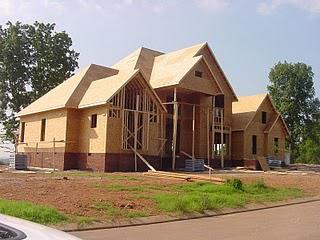An analogy of this in the entertainment world would be the show American Idol. The judges on the show size up and evaluate a singer’s ability and potential based on 30 seconds worth of singing. Based on their experience, they see and hear things the average fan does not. They can do it so quickly and accurately because it’s their job to.
That being said, when evaluating potential, coaches and scouts first are going to look at skills and attributes that cannot be taught. Body type, running speed, arm strength, bat speed, hand-eye coordination, and power at the plate. Although good training and instruction can improve on all of these slightly, a player is most likely going to be limited in the amount of improvement they can make. Instruction itself will never turn a 75 mph thrower into a 95 mph thrower no matter what an advertisement may say. Genetics tends to take care of that.
Here's an example. Say two kids both throw 78mph. Player A has good, sound mechanics and is always around the plate. He is 5’9” and comes from a family in which nobody is above 5’9”. Player B is also 5’9” with horrible mechanics and very little accuracy. He comes from a family of people above 6’0”. My guess is that Player A has had a better career up to this point. A coach may end up keeping both players but most scouts would say that Player B has more potential. Why? First, you can’t teach a kid to be 6’0” and the family background gives every indication that Player B will continue to grow. Second, if Player A is throwing 78mph with sound mechanics he most likely will not get much better. He probably has reached his ceiling of velocity because his good mechanics are currently getting the most out of his arm and body. Player B on the other hand has a “better upside” because when you combine a future (probable) 6’0”+ frame with better mechanics that can be taught, chances are good his velocity, control, and overall success will improve fairly quickly. The same principle applies to hitting and every other position on the field as well. A coach and scout will determine if the player has a strong enough foundation of physical skills in which to build upon. It's very much like the building of a house. If you want to build a large house with many stories you have to first see if the foundation is strong enough to support the weight and eventual stress of the elements. You can't build a 4 story house on a foundation that will only support one story. To play at the high school, college, or professional level, a player must show that they have the foundation to support that level of competition. Of course, a foundation is underground and cannot be seen by the average person. Unfortunately, some kids and their parents dream of a huge house/career but fail to see that their foundation isn't strong enough.

All players want the big, beautiful "house" (career).
Scouts and coaches need to see the foundation first.
During a one-day or week long tryout, coaches and scouts will try to put the players in situations or drills where they can gauge their natural skills quickly. 60 yard dash, a few swings, a few long throws, etc. Usually an intersquad game is set up eventually so that the evaluators can see some of the finer points, technique, character, and make-up of the players. Overall aggression, command of pitches, situational hitting, handling adversity, hustle, and enthusiasm are some of the things to be seen once the games begins.
It takes some pre-planning and some consistency on the part of the coaching staff to make sure all the evaluators are looking for the same thing. If that's done, a whole lot can be seen by a coach or scout in a short period of time.
Hopefully, this answered the question. If not, let's continue the discussion!

